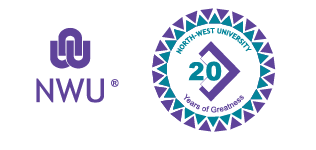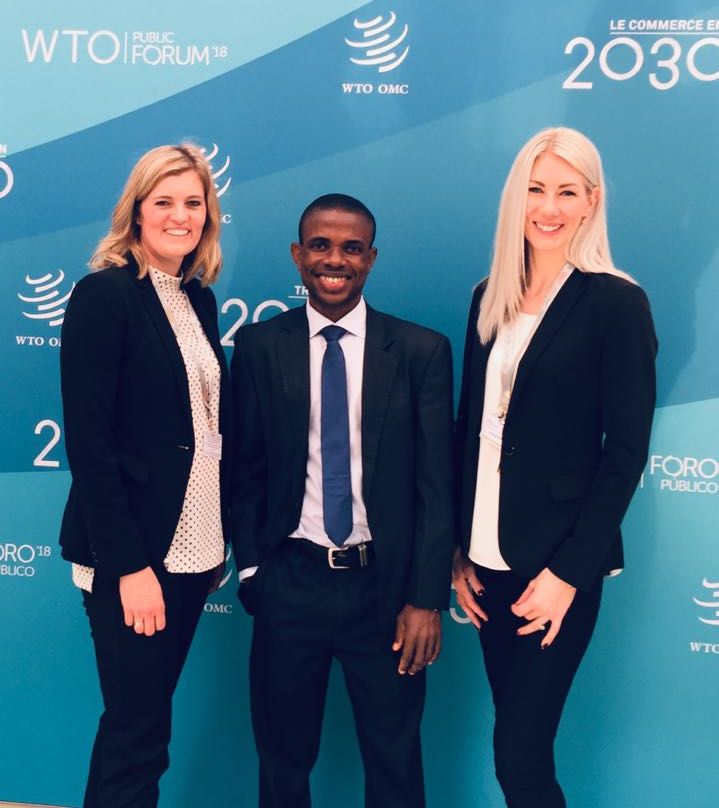 NEWSLETTER ISSUE #6/2018
NEWSLETTER ISSUE #6/2018
|
PhD student Lorainne Ferreira presents research at WTO Public Forum
Ms Lorainne Ferreira and Prof Ermie Steenkamp recently attended the 2018 WTO Public Forum in Geneva (this year the theme was ‘Trade 2030’) and presented a paper at the WTO Chairs Programme session which was held on 4 October 2018. In their paper, titled ‘Promoting sustainable and inclusive trade in a digital era by exploring untapped intra-regional trade opportunities in Africa’, Lorainne and Ermie looked at some of Africa’s major trade, development and digital technology challenges and how digitalisation, in particular, can be effectively leveraged to improve the continent’s economic prospects. They explained that Africa is the continent with the lowest intra-regional trade in the world, with generally low Internet penetration rates being a contributing factor. African countries face many obstacles in their quest to improve their trade competitiveness and performance – a phenomenon that is extensively covered in the literature. Whereas most studies have tended to focus on the negative factors that drag down Africa’s potential, Lorainne and Ermie’s paper adopted a more positive and practical angle, focusing instead on the many trade opportunities on the continent that have not yet been tapped but which could be a game changer to many countries’ regional trade performance. They explained how they had identified a range of new trade opportunities by matching consistent import demand with export supply on a detailed product level. About 70% of the identified opportunities on the continent had not been tapped at all. In other words, no trade is currently taking place in terms of those particular product-market combinations. While typical problems such as strong competition, and high tariff and non-tariff barriers should not be ruled out as possible barriers to trade, the possibility remains that many opportunities have simply been overlooked. The paper recommends that digital technology be used more aggressively to seize the trade opportunities identified. For example, uniform information systems could be implemented across the continent to enhance border and customs efficiency and reduce delays and trade costs. Further measures could be reporting information on non-tariff measures via cell phone and hosting information about trade opportunities on digital information platforms which trade promotion organisations could then share in different countries. Ms Lorainne Ferreira is a TRADE PhD student and Prof Ermie Steenkamp is her promoter. |
Archive newsletters
|
|

